‘Trump with a pint’: How Nigel Farage is upending British politics
Farage’s Reform UK is soaring in the polls—and doing better at the ballot box—as voters lose patience with slow economic growth and high immigration
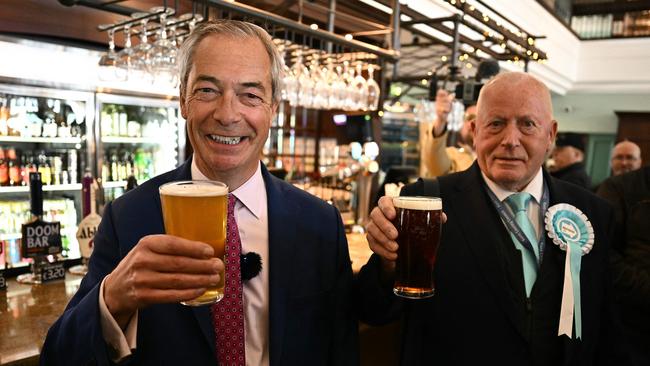
A year ago, Britain’s populist politician Nigel Farage wasn’t sure whether he would even run for Parliament in a coming national election after failing seven previous times to win a seat.
The eccentric former commodities trader not only went on to win a seat, but his upstart Reform UK party has since surged in popularity on an anti-immigration platform and is now polling neck-and-neck with the ruling Labour Party and narrowly ahead of the opposition Conservatives.
The party is also doing far better than previously at the ballot box. Reform appeared headed for a historic victory after local elections on Thursday, taking dozens of local council seats from the Conservative Party. Reform also won a special district election in a seat long viewed as a Labour stronghold, increasing Reform’s presence in Parliament and showing it can siphon off votes from both the right and the left.
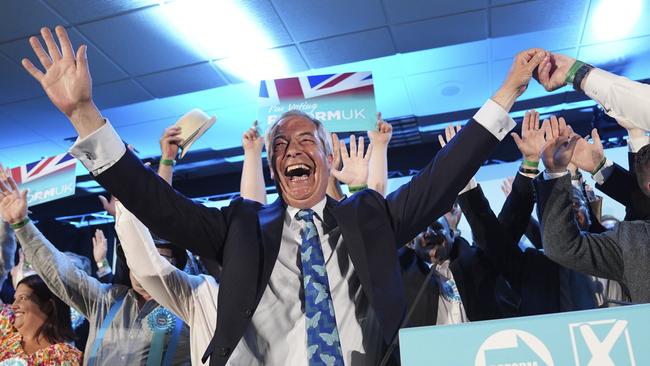
The surge has transformed Farage from a colorful sideshow of British politics into a leading attraction, with a real shot at what until now seemed a far-fetched idea: that he could eventually win power.
“I think we’ve supplanted the Conservative party now as the main opposition party to the Labour government,” said Farage, who smokes cigarettes and is often pictured quaffing pints of beer, part of his public persona as an average “bloke” who tells it like it is (he has been called Donald Trump with a pint).
The rise of Reform and its frontman reflects the same kinds of populist forces that have disrupted politics in the US, continental Europe and elsewhere: resentment at the perceived failures of traditional politicians and frustration at how globalization played out in industrialized nations for many in the working class, including a sense that too many jobs went overseas and too many people came in through immigration.
Farage, who rose to prominence as a champion for Brexit and one of the few British politicians to openly embrace Trump, is trying to ride that disaffection to pull off a Trump-style takeover of British politics. The difference is that instead of taking over an establishment party, Farage has built his own.
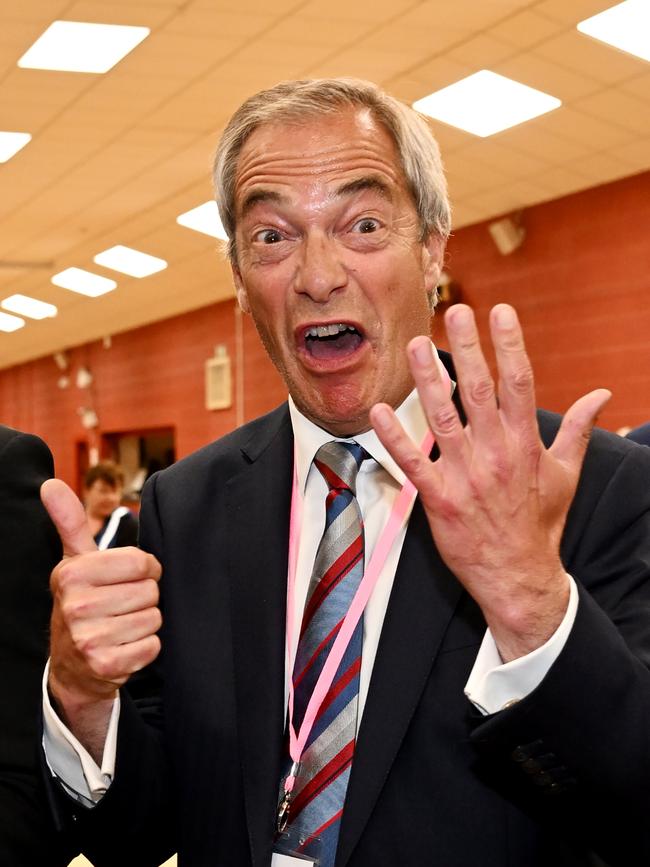
Reform has climbed from just 8 per cent support in polling two years ago to 14 per cent during last year’s election. Now it is polling between 23-26 per cent, roughly tied with Labour and a few points clear of the Conservatives, called the Tories, who face the threat of Reform becoming the go-to right-wing party.
Rising support for Reform follows a record surge in immigration to the UK in recent years under the Tories, who governed from 2010 to 2024. The Conservatives repeatedly promised, and failed, to lower immigration numbers, leading some voters to feel betrayed. More than 1.6 million people migrated legally to the UK over the past two years, alongside tens of thousands arriving illegally each year in small boats.
Labour, elected just last year, has seen its approval ratings slump as economic growth remains sluggish. It has angered businesses by hiking taxes, and angered working-class voters by trimming some state benefits. While it has tightened rules on legal migration, asylum seekers are arriving this year in record numbers. A recent poll showed 72 per cent of Brits say the government is handling immigration badly, versus 16 per cent who say it is doing a good job. It was the second most important issue after the economy.
Having won a handful of parliamentary seats in last year’s general election, Farage now wants to transform Reform into a national movement to overtake the Tories on the right and win the next general election, likely in 2029.
Winning power is still a long-shot. Farage’s party is largely a one-man band, and he has a history of bust-ups with colleagues and allies. Meanwhile, his populist economic policies are scattershot, ranging from abolishing inheritance taxes to nationalizing the steel industry.
While Farage’s previous attempts to build a political party descended into chaos, this time he appears more disciplined and his party is better funded. Farage has himself become a celebrity, having appeared on a British reality television show called “I’m a Celebrity…Get Me Out of Here!”
As a result, a man once dismissed by Britain’s political class as a fringe crank “is now the headline act” in Westminster, says Rob Ford, a professor at the University of Manchester.
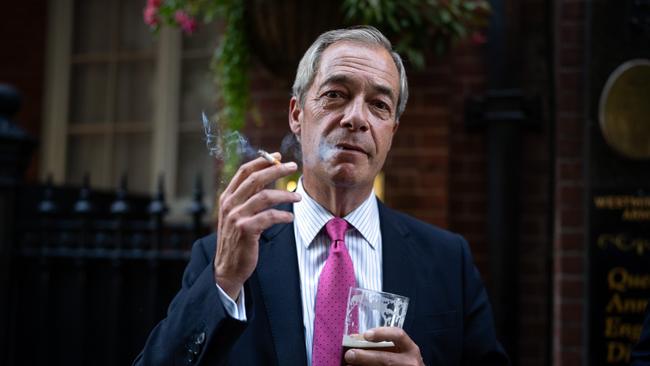
Reform’s surge is upending a political order dominated by the two establishment parties for nearly a century. It isn’t just the rise of Reform on the right; the Green Party and the Liberal Democrats are threatening Labour on the left. Labour and the Conservatives together mustered just 57 per cent of the vote in last year’s general election—the lowest share in a century.
“Britain’s two-party system is probably facing its biggest threat in a century,” said John Curtice, a politics expert at the University of Strathclyde. The UK is now a five-party system, he said.
Curtice said there have been other times when another party has surged briefly in the polls and looked to threaten one of the establishment parties, most notably the Social Democrats on the center-left in the early 1980s, which briefly threatened to overtake Labour but came up short, finally merging with the Liberals to become the Liberal Democrats.
But this time, he said, it feels different because voters broadly have lost faith and attachment to the established parties.
“We are seeing a fragmentation of our politics the likes of which I never thought we would see,” said Farage as he held court over a boozy lunch with journalists in Westminster recently.
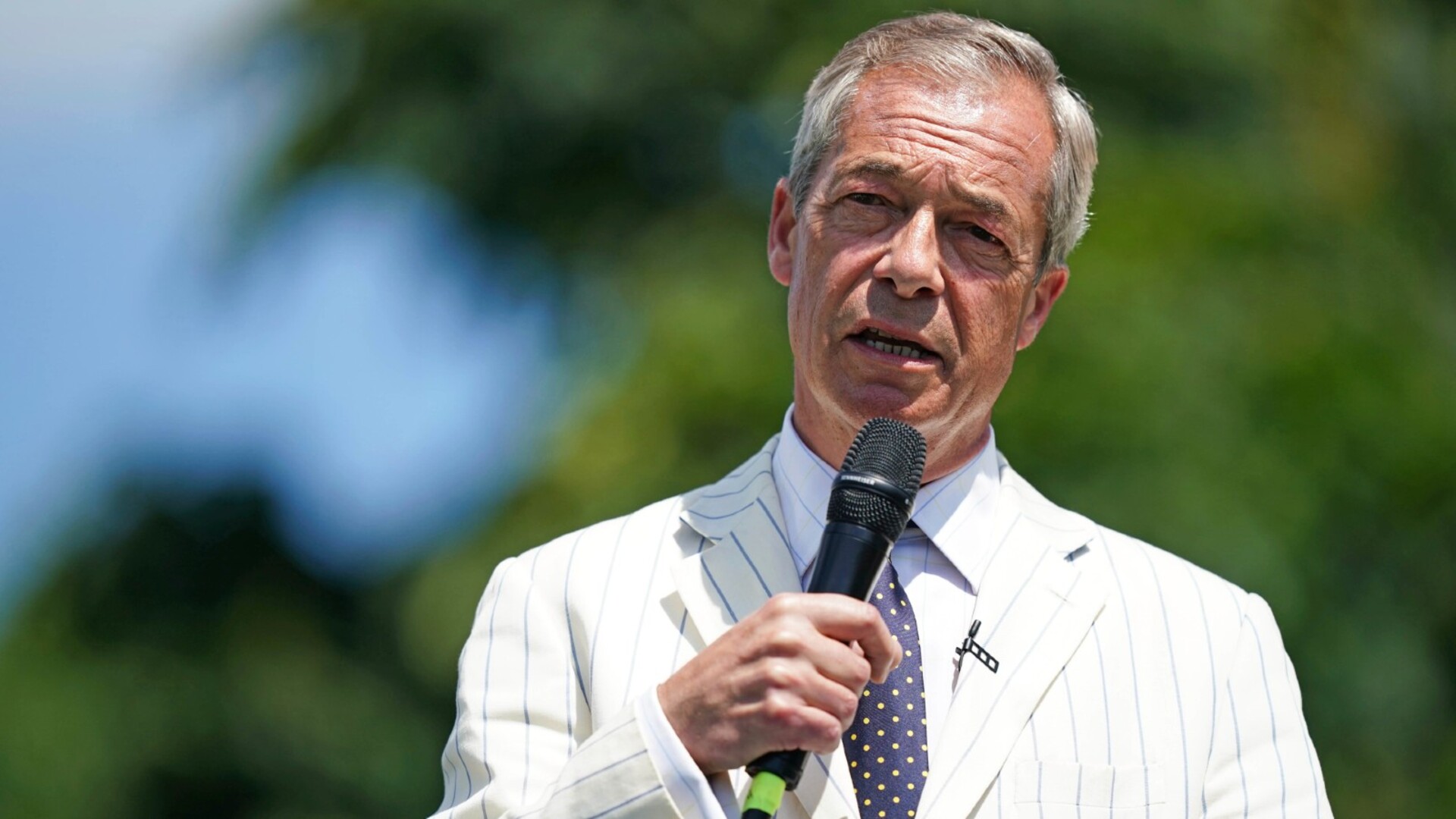
Britain’s quirky “first past the post” electoral system, where each parliamentary seat is winner-take-all, usually punishes smaller parties and has helped maintain the Labour-Conservative duopoly. But with three or more parties in the mix, it could play to Reform’s advantage since even small shifts in support could mean big shifts in outcomes. In last year’s election, Labour got below 34 per cent but a big majority.
“With this voting system and these polling figures, all the certainties about British government and politics are at least temporarily and possibly permanently suspended,” said Tony Travers, a politics expert at the London School of Economics. Most shocking of all, he said, is that the Tories, often described as the world’s most successful election machine, could be “a short distance from being potentially obliterated.”
This week’s results will likely cause some Tories to panic and heighten divisions over how to deal with Reform, Travers said. Tory leader Kemi Badenoch has ruled out an alliance, but other Tory figures have openly backed the idea.
Thursday’s local elections confer limited powers—overseeing local services such as trash collections and care for the elderly. For Reform, it is the opportunity to show they can govern, but also presents a risk that they won’t do any better than their rivals.
“You’re witnessing the end of a party that has been around since 1832,” said Farage of the Tories. “It is disappearing.”
Wall Street Journal


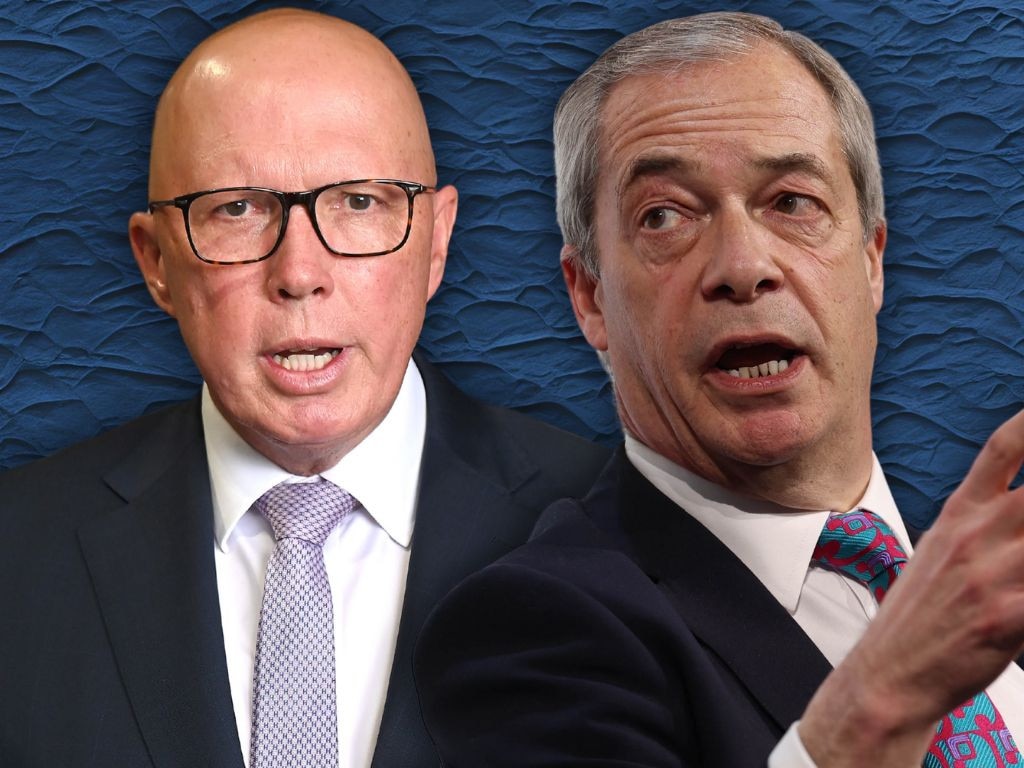



To join the conversation, please log in. Don't have an account? Register
Join the conversation, you are commenting as Logout